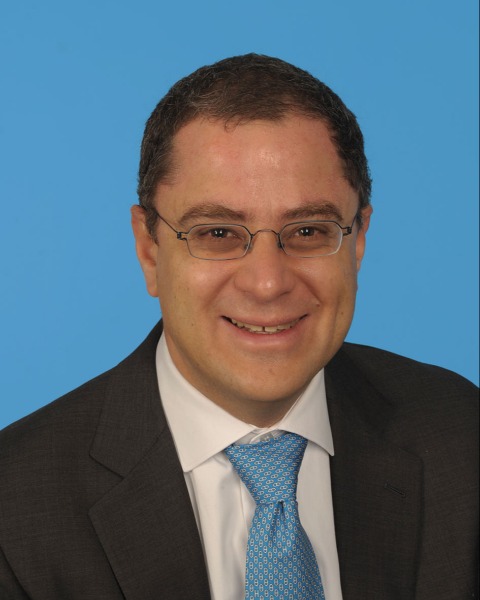HPB
42: Salvage Hepatic Artery Infusion Chemotherapy after First Line Systemic Failure in Patients with Unresectable Cholangiocarcinoma

Misha Armstrong, MD MPH (she/her/hers)
General Surgery Resident
New York Presbyterian / Weill Cornell Medicine
New York, New York, United States
Misha Armstrong, MD MPH (she/her/hers)
General Surgery Resident
New York Presbyterian / Weill Cornell Medicine
New York, New York, United States
Naaz Nasar, MD (she/her/hers)
Research Fellow
Memorial Sloan Kettering Cancer Center
New York , New York, United States- JC
Joanne Chou, MS
Biostatistician
Memorial Sloan Kettering Cancer Center, United States - MG
Mithat Gonen, PhD
Chief of Epidemiology and Biostatistics
Memorial Sloan Kettering Cancer Center, United States - KS
Kevin C. C. Soares, MD
Assistant Attending Surgeon
Memorial Sloan Kettering Cancer Center, United States 
Vinod P. Balachandran, MD
Assistant Attending Surgeon
Memorial Sloan Kettering Cancer Center, United States- JD
Jeffrey A. Drebin, MD, PhD
Chair of Surgery
Memorial Sloan Kettering Cancer Center, United States - TK
T. Peter Kingham, MD
Attending Surgeon
Memorial Sloan Kettering Cancer Center, United States 
Alice C. Wei, MD, MS, FRCSC (she/her/hers)
Attending Surgeon
Memorial Sloan Kettering Cancer Center
New York, New York, United States
Michael I. I. D'Angelica, MD
Attending Surgeon
Memorial Sloan Kettering Cancer Center
New York, New York, United States- AC
Andrea Cercek, MD
Associate Attending
Memorial Sloan Kettering Cancer Center, United States - JH
James J. J. Harding, MD
Assistant Attending
Memorial Sloan Kettering Cancer Center, United States - EO
Eileen M. O'Reilly, MD
Chair of Medical Oncology
Memorial Sloan Kettering Cancer Center, United States 
Ghassan K. Abou-Alfa, MD, MBA
Attending
Memorial Sloan Kettering Cancer Center
New York, New York, United States- WP
Wungki Park, MD
Attending
Memorial Sloan Kettering Cancer Center, United States - LC
Louise Connell, MD
Attending
Memorial Sloan Kettering Cancer Center, United States - NK
Nancy E. Kemeny, MD
Attending
Memorial Sloan Kettering Cancer Center, United States - WJ
William R. R. Jarnagin, MD
Chief of Hepatopancreatobiliary Surgery
Memorial Sloan Kettering Cancer Center, United States
Abstract Presenter(s)
Submitter(s)
Author(s)
Unresectable intrahepatic cholangiocarcinoma (IHC) is associated with poor overall survival (OS). Prior studies have suggested improved outcomes with hepatic artery infusion chemotherapy (HAIC), with or without systemic (SYS) compared to SYS alone, but the role of HAIC continues to evolve. We retrospectively compared outcomes of HAIC when used as 1st line treatment compared to 2nd line therapy in patients with advanced IHC.
Methods:
Eligible patients were assessed out of 722 consecutive biopsy-proven, liver limited IHC between 2000-2018. Patients undergoing upfront surgery or those with metastatic disease beyond regional lymph nodes were excluded. Overall survival (OS) was estimated using Kaplan-Meier methods. Cox regression model was used to examine the association of HAIC given at any time point with OS. To further dissect the timing of HAIC therapy (1st vs 2nd line) on OS, multi-state models using parametric Cox regression, as well as separate cause-specific hazard model to integrate the transition to 2nd line HAIC from the 1st line SYS state were used to estimate the mean survival time from diagnosis.
Results:
336 patients eligible for HAIC were analyzed: 137 patients began treatment with 1st line HAIC (median age 63, 40% male) and 199 patients received 1st line SYS (median age 64, 46% male). Median OS of all patients was 22 months (95% CI: 20-25 months), and HAIC given at any time significantly reduced all-cause mortality by 34% (HR: 0.66, 95%CI: 0.52-0.84). Multi-state analyses revealed that patients who received 1st line HAIC had a mean OS of 33 months from disease diagnosis. Patients who transitioned to 2nd line HAIC after 1st line SYS had a mean OS of 36 months from diagnosis, while those who failed 1st line SYS and continued 2nd line SYS had a mean OS of 22 months from diagnosis. Patients who received no further treatment after 1st line SYS had a mean OS of 9 months. Median OS from the start of 2nd line for patients who received 2nd line HAIC was 18 months and 8 months for patients who started 2nd line SYS therapy. The sites of progression of disease in different treatment groups is described in Table 1.
Conclusions:
HAIC treatment of unresectable liver-dominant IHC at any time is significantly associated with improved OS. Mean OS in patients treated with 2nd line HAIC did not appear to be significantly different than those receiving HAIC as 1st line therapy. Both appeared to be superior to 2nd line SYS. The survival benefits of HAIC appear to be maintained after failure of 1st line systemic chemotherapy. Plan for a formal prospective phase III clinical trial is underway.
Learning Objectives:
- Upon completion, participants will be able to list sites of disease progression for cholangiocarcinoma.
- Upon completion, participants will be able to describe the role of hepatic artery infusion chemotherapy in unresectable cholangiocarcinoma
- Upon completion, participants will be able to explain the benefits associated with first line hepatic artery chemotherapy compared to second line systemic chemotherapy.
